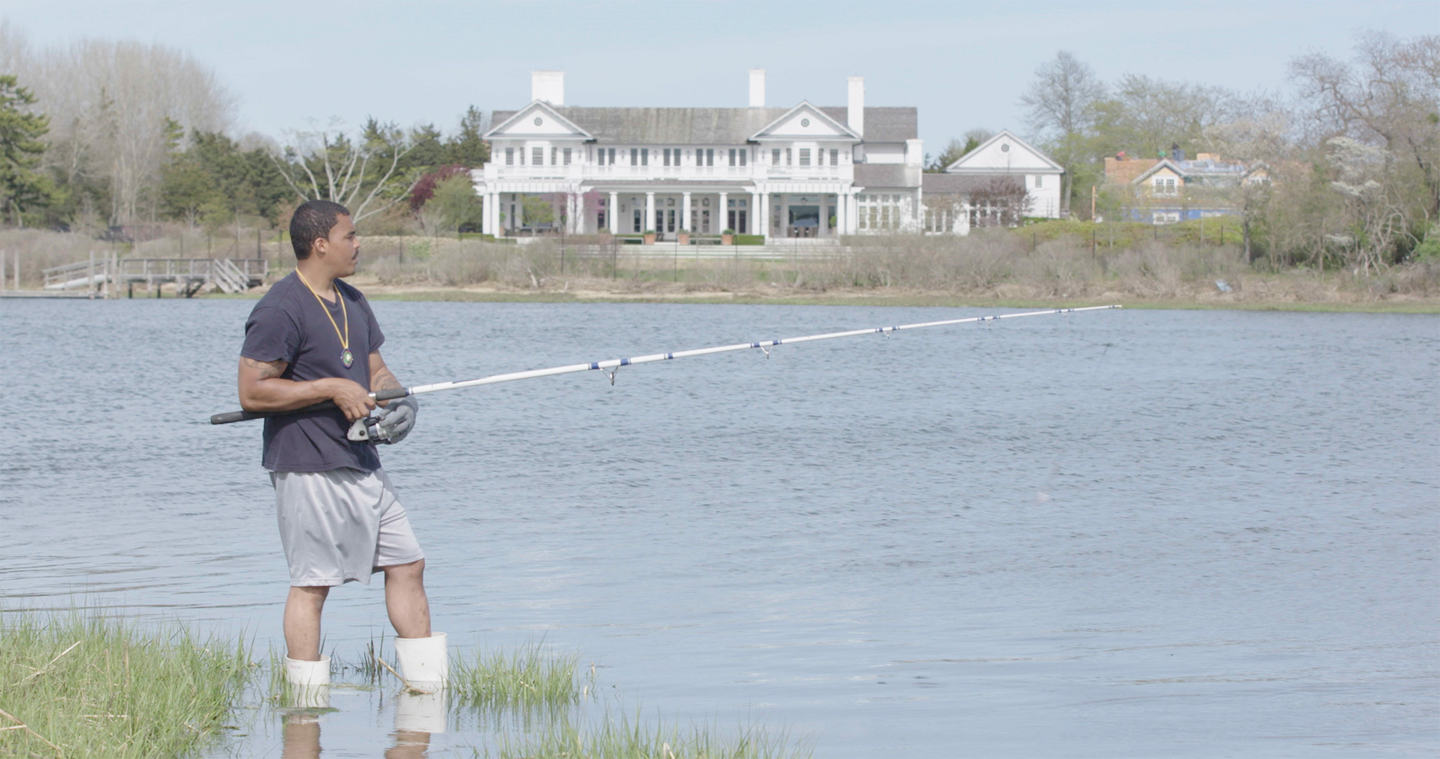The Economic Divide

“It was incredibly honest and insightful. It gave me a whole new perspective of the Hamptons that I hadn’t had before,” Treva Wurmfeld said, recalling gathered around a fire pit with Rebecca Hill-Genia, a Shinnecock activist, at the Shinnecock Indian Reservation, discussing the multitude of issues facing the group today.
Wurmfeld will be debuting the world premiere of her film “Conscience Point” at the 27th annual Hamptons International Film Festival on Monday, October 14, at 12 PM at the Southampton Arts Center. Her documentary touches on the nearly two-decade-long battle between the Shinnecock Indian Nation and Southampton Town, taking a look into topics of land ownership, morality, income inequality, and environmental impact.
She began directing the project in 2014 after meeting Hill-Genia. “That launched me into this whole endeavor. She immediately impressed me as somebody I would want to focus my lens on and get to know. It was at a time in my own life where I was eager for a fearless role model, which she is,” she said.
Wurmfeld was born and raised in New York City and would occasionally summer in the Hamptons as a child. But meeting Hill-Genia at the Shinnecock Nation Cultural Center & Museum altered her perspective of the area.
Southampton residents are some of the wealthiest in the country, a stark contrast to their Shinnecock neighbors, many who straddle the poverty line. The economic divide has only worsened with escalating property values and the continuous building boom. When luxury homes overshadow the impoverished reservation, the original inhabitants of the area, each new home becomes another reminder of Shinnecock’s ancient burial ground that continues to diminish, she related.
One such reminder is the Shinnecock Hills Golf Club. In 2018, at the U.S. Open tournament at the golf course, Hill-Genia, and other protestors, aimed to remind the thousands of visitors arriving for the match that the grounds they were walking on were the former burial grounds of the Shinnecock tribe.
In addition to shining light on Hill-Genia’s activism, following her journey as she fights against overdevelopment, the film features interviews with Shinnecock Nation leaders, Southampton town officials, and developers. A primary cause for concern is the improper disposal of ancestral grave sites with new construction in the area.
“Conscience Point” also features farmers Bill and Joanna Halsey, who discuss the changing landscape, and bayman Chip Moran, talking about the environmental impacts affecting his livelihood. The film addresses the “trade parade” (a term coined by locals referring to the commuter traffic congesting Route 27), which is worsening as townsfolk are forced to leave the area to find more affordable housing, but still commute to Southampton for work.
“My understanding is that a lot of the people who are out year-round are actually quite familiar with a lot of these issues. I think the population that perhaps could be more tuned into some of these issues are more of the people who have a house and come to visit. But the film gets into the historic plight of the Shinnecock, and I’m not sure how much of the history people know,” said Wurmfeld.
She wrapped up post-production in June, just prior to billboards being erected by the Shinnecock Nation along Sunrise Highway. The post screening Q&A is sure to elicit a new dialogue.
Today, Wurmfeld sees everything from a new perspective, a shift in thinking, and hopes the film resonates with others. “It’s hard for me to see New England villages and towns the same now,” she said.
Hamptons International Film Festival runs October 10 through October 14. For those who can’t make it to the HIFF screening, the film will preview on PBS’s “Independent Lens” on Monday, November 18, from 10:30 PM to midnight, available on TV or www.pbs.org. It will be part of the channel’s Native American Heritage Month programming. Make sure to go to www.hamptonsfilmfest.org for a full schedule of other films.



